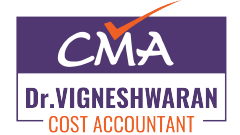If you want to manage your finances more effectively and reach your financial goals, you might need to work on your budgeting.
Budgeting can help you track your spending, save money, and make informed decisions. Most people want to improve their budgeting but don’t know how to get started. Here are some tips from a cost management accountant on how to improve your budget.
Understand Your Financial Situation
The first step in budgeting is understanding your current financial situation. Start by tracking your:
- Income
- Expenses
- Assets and liabilities
Once you have a clear picture of your financial situation, you can develop an achievable budget.
Set Financial Goals
Whether you want to pay off a debt or save for your retirement, deciding what to do with your money is important to creating a budget. Categorize your goals as short-term, mid-term, and long-term to make your budget more effective.
Ensure your financial goals are specific. For instance, instead of setting saving money as a goal, make it more specific, like saving Rs. 1000 per month.
Create a budget
There are many different budgeting methods, including,
The 50/30/20 Budget: In this method, you break your expenses into three categories—necessities, wants, savings, and debt payments.
The zero-based budget: The rule in this budgeting method is quite simple—you allocate every rupee of your monthly income toward expenses, savings, and debt payments. In the end, your income minus expenses should be zero.
The pay-yourself-first budgeting: This method involves setting aside money for savings first and then using the rest to pay their bills.
The no-budget budget: This budget is flexible and better suited for people earning more money than their monthly expenses.
Understanding each method and choosing one that suits your lifestyle can make it easier to follow the budget.
Track Your Spending
Tracking your spending is crucial to ensure that you are not deviating from your budget. Here are some steps to track your spending effectively:
- Collect all your bills and receipts
- Categorize your expenses
- Record your expenses
- Analyze expenses to identify where you are overspending
Review and Adjust Your Budget Regularly
Your financial situation and goals can change over time. That is why it is important to review your budget regularly. If you have an unexpected expense, don’t worry, you can alter your budget. It’s always good to set aside some funds for unexpected expenses.
Following a budget is harder than creating it. You might take a few months to get used to it, especially if you are new to budgeting. But like any habit, the more you do it, the easier it will become. When you need more help, you can talk to a financial advisor, a cost management accountant, or even a trusted friend or family member. They can guide you and hold you accountable for sticking to your budget.

